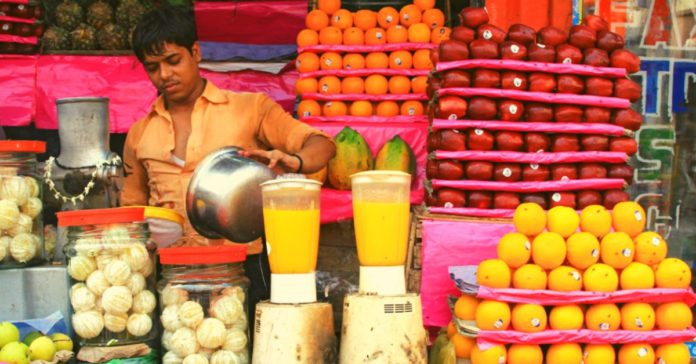
1. How to check hygiene levels at street juice shops
The recent social media video of Mumbai vendor adding toilet water in chutney at the Borivali Railway Station has once again raised a question mark on the hygiene levels of street food. Not only this, another person was also caught squeezing lemons in a dirty drum and stirring the mixture with his bare hands at Kurla Railway Station. According to a report, several street food stalls have been reprimanded, fined and penalised over the years for violating the hygiene rules laid by the Food Safety and Standards Authority of India (FSSAI). You will be surprised to know that the Hyderabad-based National Institute of Nutrition (NIN) has found that 97 per cent of the juice sold at street fruit juice stalls are contaminated with pathogens like Shigella, E-coli and faecal coliforms. If all this is enough to warn about the hygiene levels of street food, read this piece of information which talks about the hygiene guidelines issued by FSSAI that you should check at street juice shops before having a sip.
2. Juice shop license
Next time when you visit a juice shop, make sure that the owner has displayed his/her license document that proves him/her as a registered juice shop owner.
3. Stainless steel or marble surface
Make sure that the juice is prepared on the surface that does not absorb water, like stainless steel or marble.
4. Authentic ingredients
If the juice shop is a registered one, he/she should purchase all the ingredients (fruits, ice, salt and sugar) from a registered government vendor and should keep the bill of transaction in the record. You must enquire about it.
5. Proper refrigeration
Keeping the humid weather in mind, the perishable ingredients (fruits and vegetables) must be kept in food grade vessels and refrigerated properly. You can always check this before you order juice.
6. Use bottled water
No street water point should be used for cleaning or fruit washing process. The vendor should only use bottled water jars and should keep the bill of transaction handy in case an inspector comes to check.
7. Regular cleaning of refrigerator
The refrigerator should be clean and the vendor should make it a habit to clean it at regular intervals to maintain utmost hygiene.
8. Proper storage and cleaning of utensils and machines
All the juice making machines and utensils should be clean and kept safe from lizard, cockroach and rats. You should not have juice from a shop which has roaches.
9. No artificial ripening agent
You should check that the fruits used are natural and no artificial ripening agent is used. The easy way to check this is to look at the size of the fruit.

